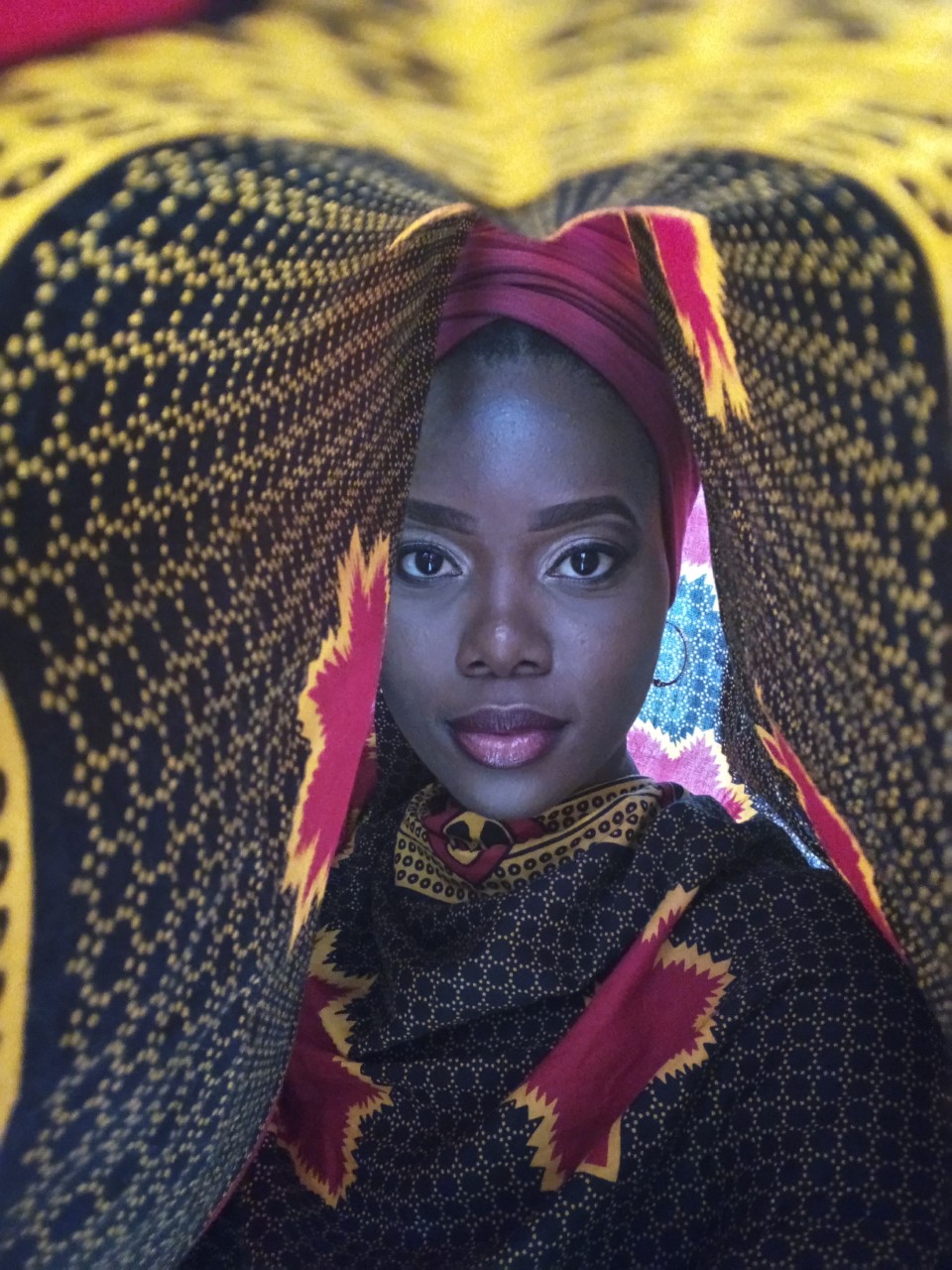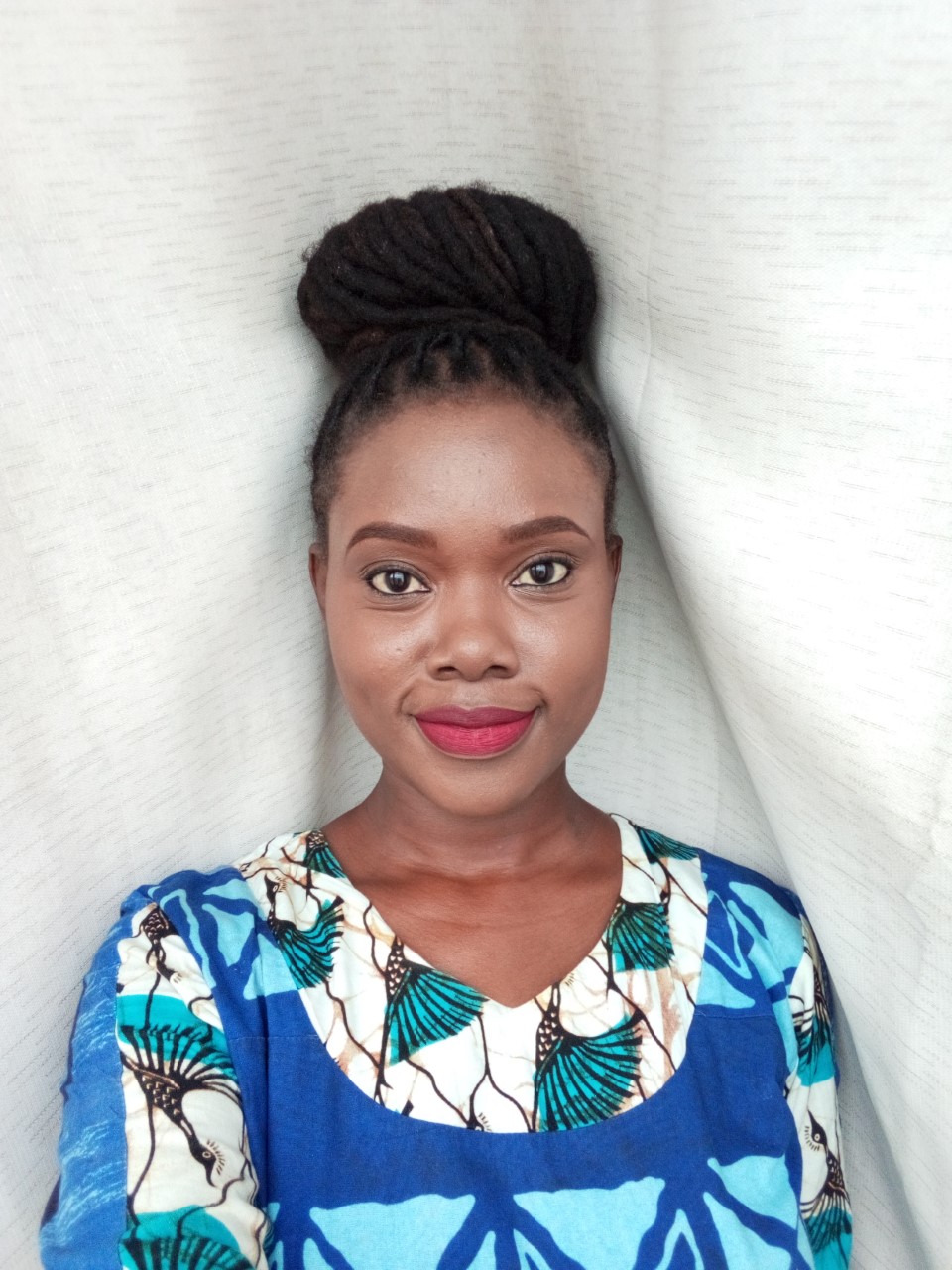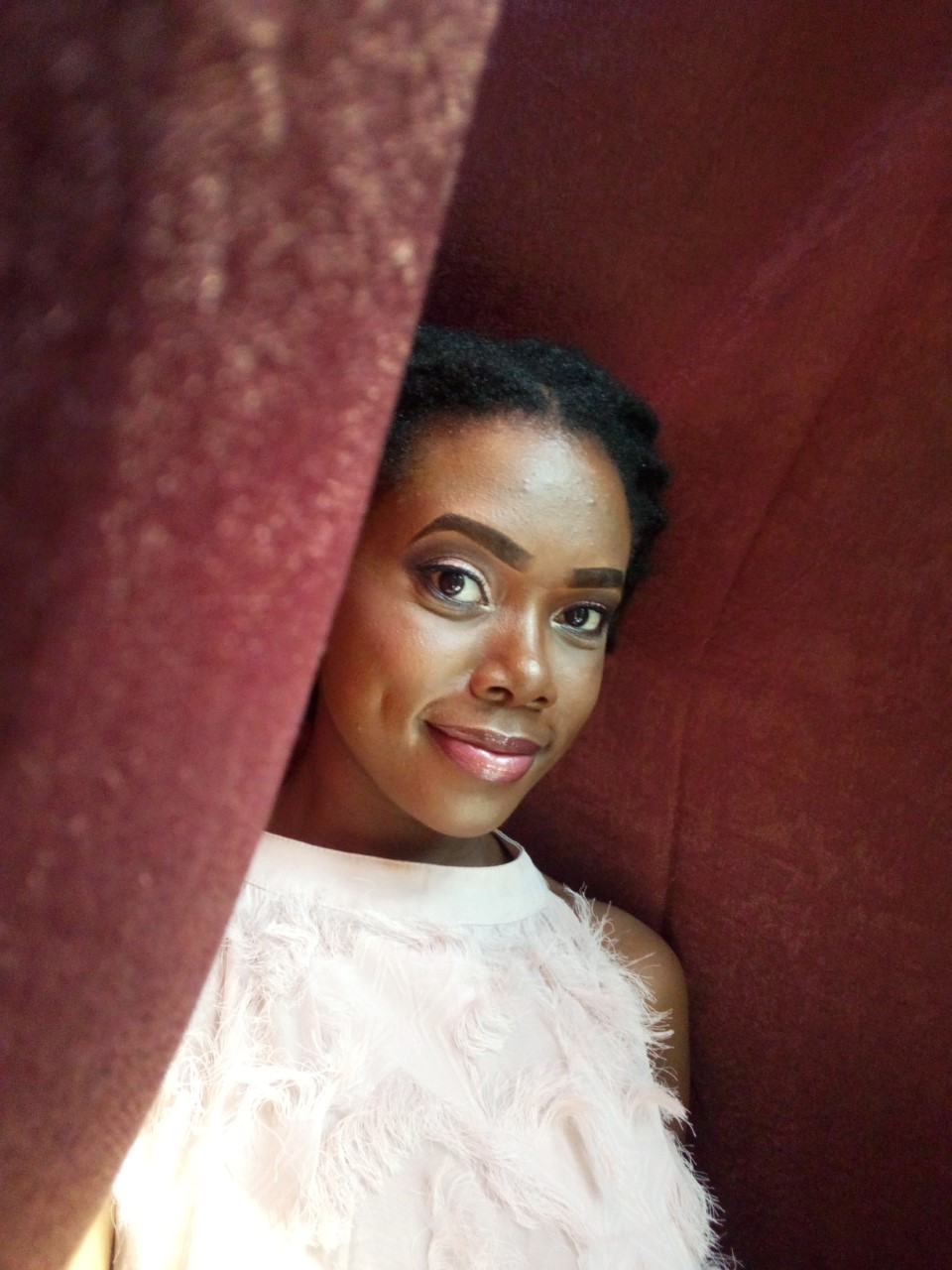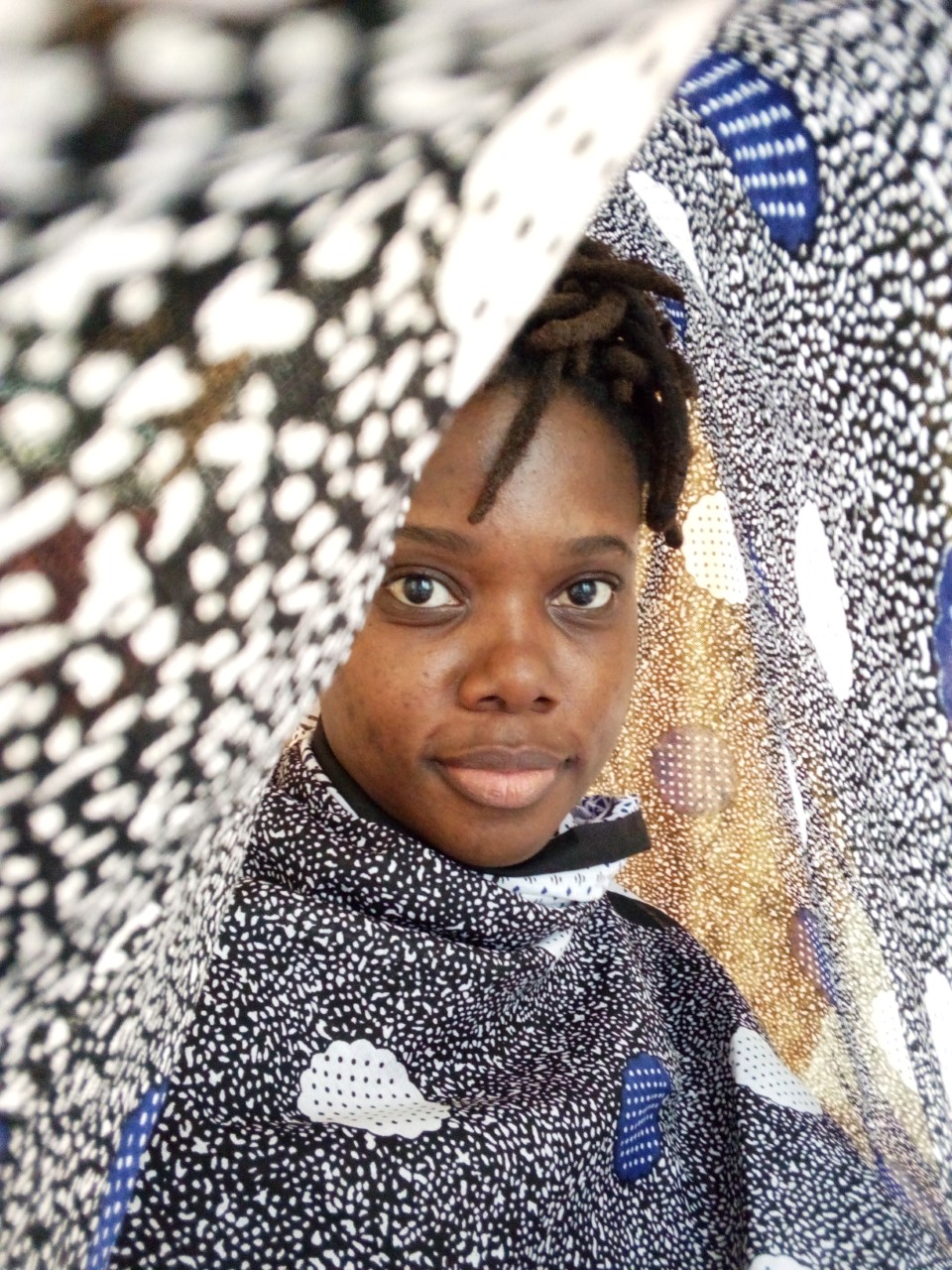
Before the age of three my parents already knew I had a heart problem because I would almost faint if I encountered any shock. When I was sixteen, I had to see a cardiologist because I would have endless fatigue, palpitation, and yawning. At this time, I was old enough to understand that I was born with one heart valve that was shorter than the rest. Any cause for stress could trigger the symptoms above.
My interpretation of stress at that time was physical stress. So, I took caution. I could walk fast, but I would not run or do physical exercises. I knew my condition was mild and seasonal. A cardiologist suggested a heart surgery if the symptoms worsened. But that didn’t prevent me from playing volleyball in high school and taking dance classes at the university.
I have lived with levels of stress as expected of a graduate student. It didn’t take long after I joined the PhD program at Makerere University in 2016 that I became a regular patient at one private hospital in Kampala. The hospital visits were regular to the extent that I became besties with the receptionists and the nurses at the emergence room (I had a few asthma attacks).
Sometimes it would just be fatigue, other times it would be severe Menstrual Periods’ (MPs) symptoms and, of course, every now and then heart palpitations. So, there were many visits to the cardiologist, gynecologist, and physicians. They all kept advising that I needed to change my lifestyle:
Become physically active and rest well.
Touché!

In November 2020 I was living in Bukoba. I knew there was a dimension and level of stress I had reached that required more than just physical exercise and rest. This time I needed a different specialist: a psychiatrist. I had no trouble falling asleep, but all my dreams would feel vivid and make me cringe such as if I was walking in floods. I would wake up feeling so exhausted.
My working capacity diminished day after day. I could neither work long nor concentrate enough to feel I have done justice to my daily tasks. But the incidences of getting out of the house, wearing a mask, and not feeling embarrassed to tell the guards at the regional hospital that I was there to see a psychiatrist, demonstrated how paranoid I was becoming.
I would wash hands and knives with soap between peeling and chopping vegetables. I could not refrigerate food because it would not be as fresh as it is supposed to be the next day. I couldn’t buy bread because God knows how clean the bakery kitchen is, and how long the bread had been on shelf. I had to make food everyday and bake bread many evenings.
The psychiatrist wrote my diagnosis as Obsessive Compulsive Disorder (OCD) and gave me a prescription. In two weeks, I could sleep better, but continued with the medication. I asked to see a psychologist, but the hospital had none.
So, I turned to the Internet. Like the Pandora box it is, the Internet had a whole range of OCD stories, explanations, and interventions. Some stories were scary, some tips were confusing, and some explanations were plausible. Yet I knew my compulsions needed a psychological intervention because even when I tried to follow tips from the web, I could not calm them for long before they resurface.
Luckily, I moved back to Dar es Salaam in 2021 and continued treatment with a new psychiatrist. Now I could also see a clinical psychologist. With medication, I am sleeping better. Through counseling sessions, I am working on my tricky compulsions.
I wanted to share why I call OCD a trickster through one compulsion – wearing makeup. Since I have a background in visual arts, learning makeup routines from the internet is like putting drawing and painting into practice. Being a visual artist, I know how to take advantage of light and space to get the best selfies.

Ironically, 2018 was a good makeup year because I moved into a well-lit apartment, I got my first smartphone, and yet my mind was becoming more and more restless. So, after turning for sometimes in bed I would get up in the middle of the night and do makeups and take selfies until I felt exhausted. Then I would wash the makeup and go back to bed.
Most of the times I was able to fall asleep. Yet insomnia was a menace. Before I knew it, I had a wide range of makeup applicators and cosmetics to play with in case of no sleep.
What started as a distraction quickly became an obsession. I started having ‘intrusive thoughts’ about makeup. I would imagine how much dirt and germs salon makeup applicators would have since they attend to a lot of customers. Even when these applicators were clean, how much care, cleaning products, and water would go into it?
I felt I had a good reason for practicing to perfection the art of makeup because I clean my applicators regularly and thoroughly. Besides, in case I had to attend a party, I wouldn’t have to go through the anguish of whether the beautician would get the makeup right. Or, worse, make me look ‘ashy ghost-like’.
OCD tricked me into obsessively learning to perfect my makeup skills, so I don’t ever take the risk of being touched by a beautician. A funny fact is that I don’t even like parties. In 2020, I attended only one wedding.
Yet I found a sound reason to continue perfecting my makeup skills: taking selfies in kanga. I have been taking kanga selfies as artworks that celebrate my Indian Ocean heritage as a Swahili woman. I guess I now can’t live without wearing makeup given my own kanga collection and my mother’s. Even when I am visiting relatives, I feel I have to take a kanga selfie.

In one of the sessions, the psychologist suggested that I let different beauticians do my makeup. After procrastinating for days, I walked myself to the first beautician. Of course, her applicators were not pristine, so my armpits were sweating.
My anxiety started melting as I walked home and started receiving a lot of compliments from my neighborhood brothers. When I got and took a closer look, I learned a new makeup trick. Nonetheless, I sat there all evening waiting for my skin to itch and swell. Nothing happened.
I woke up the next morning expecting rashes on my face, but it looked clear. I have been to another beautician, yet my skin hasn’t reacted. Well, now that I have tricked my mind into trusting beauticians, I can visit them in case of that one wedding I might attend this year. My brain now knows even if I get skin rashes, they won’t disfigure my face.
Wearing makeup is one among my many compulsions. I don’t feel like disclosing the entire list. Why? Because, as in the case of obsessing with wearing makeup, I often feel that the compulsions don’t make any sense. Yet I just can’t rationally stop the obsessions because my brain is coded differently, that is, it has a ‘disorder’.
From experience, my OCD brain selects a few aspects of daily life and relationships and interprets them as dangers to my life. So, in order to be safe from contamination and disappointment, I have to attend to the rituals of each and every one of the compulsions. When the sun sets there is a huge sigh of relief that I survived death, injury or infection.
At the same time, I am also aware that I didn’t get much work done because I was busy surviving all the dangers. It is kind of depressing. But I must survive – and keep living.
Now with access to medical intervention, I have learnt that OCD is inherited. So, it is a condition that I have to live with. I have also been told that I cannot always be on medication. I have to identify what heightens levels of my stress and keep on working on coping mechanisms.
When I look back in the last five years, my priority has been rereading the history of global capitalism and colonialism. I do so that we can creatively devise and imagine different futures for the Global South in particular and humankind in general. My other priority has been, of course, to meet deadlines for the seminars and papers in my PhD program.
From the beginning, I knew graduate school was going to be hard. I tried to work on the physical symptoms of stress to cope with it. But I never thought there would be a day my own brain would seek my attention in the most mischievous ways.
I wish mental health evaluation and assistance would be encouraged for graduate students because, sooner or later, as I have learnt from my friends who don’t live with OCD, some form of mental issues arises as we go further into a PhD program. These days when people ask how far I am with my dissertation, I reply:
I live with OCD, I am on treatment, so my dissertation hasn’t even taken shape.
Period, I don’t explain further.
What’s on my timetable today? Mama got a new kanga; I will take selfies without makeup. Then I will continue reading Howard Zinn’s A People’s History of the United States: 1492-Present. I will also make dinner. Karibu!
Diana, I have enjoyed reading this. I will tell you why. Because…you have been able to diagnose your situation and you know what you need to do to be happy. Get that damn PhD out of the way so that you can enjoy more kanga selfies uninterrupted. See you soon.
This is such a nice read capturing your realities and how you have found a coping mechanisms that works for you. All the best in getting that PhD out of the way while you enjoy doing things for your brain.
Also, mental health is so real especially to graduate student.
Thank you very much for your encouragement Neema.
Ka Mkubwa, thank you for your encouragement… I sure want to put the PhD out of my health… When I do please buy me a kanga kama zawadi : )
Ka Mkubwa, thank you for your encouragement… I sure want to put the PhD out of my health… When I do please buy me a kanga kama zawadi.
Hello Diana,
This realization is a blessing on its own.
We shall overcome my darling ❤️❤️❤️
Diana, thank you for wittingly sharing something that most can’t. The dissertation will take shape. All the best
Thank you very Miriam for your encouragement.
Dada Dee.. 😊
: ) Bwan Sefu
Diana Kamara. The brilliant and genius Diana. Can this be a new topic for your PhD and graduate out of it? “Makeup as a new way to cope with OCD”(you know better how to make it sound ‘akademikali’ accepted)
Can’t wait to call you Dr.Kamara in near future.
Well, dear Naamala, topic taken hehehe… Thanks for your encouragement.
Daya:
This is so feeling, relieving and assuring of your selfie power. I love the rhythm of your thought lines. Writing is therapy, they say. The confidence and the purpose for writing this out is so tangible. And of course, you know, we share that lovely positivity.
Thanks Dear Diana, l learnt a lot from you
Thank you Madam for all the support you give me. Loads of love.
Thank you Prof. Raji, I probably should keep writing. Although I wouldn’t run out of Khangas, I don’t mind receiving Aso Oke from Ibadan ; )
Diana. When can we take kanga selfies together?
This long vacation : )
Prof. Raji, thank you I should probably keep writing. Although I would not run out of khanga, I don’t mind receiving Aso oke from Ibadan : )
Thank you Prof. Raji, I probably should keep writing. Although I wouldn’t run out of Khangas, I don’t mind receiving Aso Oke from Ibadan ; )
Thank you for sharing Diana, this is eye opening perspective!
Grad school is hard enough as it is before adding OCD. I hope that you will find help to manage it and make progress with school and other life.
But keep the khanga art alive!
Thank you Aneth… I am receiving treatment from Muhimbili. If I run into you, and you have a khanga… You know what will happen ;). I promise I don’t steal khanga : )
This is a great piece, Diana. Thank you for writing it. You are already overcoming your struggles and you will surely come out stronger.
Thank you for your encouragement.
My dearest Diana, I remember we lined up together waiting in unforgiving situations to be called up in for foto taking and registration around the Smart Card area near the Old UDSM library back in 2008….you remember! I reminded you of this story when I visited Makerere back in 2017 where you had helped me earlier on the day to book a hotel for my stay around campus before I visited you and had a chat and cup of coffee the same evening…I want to remind you of a kind of a blessing you have always been and shall remain to be to yourself and everyone around you. OCD can’t beat you, you have won over it and you will do it again. I will meet you soon for a tête a tête dearest!
You have a great memory… I remember these moments. Since I am getting better, there will be less worries and more memories to make… Soon!
Sending you hugs, Diana. Thanks for sharing your story.
Thank you very much, bless you.
You are really a great writer!
Every bit of this piece compulsively made me to scroll down. I like the way you have created a short story out of your medical history. OCD is nothing but an obstacle which must be overcome. I’m praying for your timely completion of your PhD program. With lots of love!
Many thanks, I am hopeful about my recovery. You will be the first to receive the good news of the PhD completion, inshallah!
Thank you for sharing,
mental health is a big issue but not often spoken and sadly few are aware of it to even do a self diagnosis of themselves so they can seek help. Hopefully the positivity in your story will help others and yourself to keep on, finish that PhD and enjoy what life ahead
Self diagnosis is the worst thing. But I do understand why people fear getting examined. I will finish inshallah!
Dear Diana,
You know why you started a Ph.D and you may know by now if you still need to still pursue it. We will support you if you decide to carry on with it or if you decide to drop it.
If you decide to carry on with it just do it at your pace, but don’t forget to challenge that OCD a little!
I should be coming soon for make up lessons!
I am carrying on with caution, thank you. Resilience is not an option. Makeup lessons anytime, karibu.
I have thoroughly enjoyed reading this Diana. Thanks for sharing your journey. Mental issues are a real concern and all efforts of awareness building will go a long way to eliminate stigma
Thank you, I have come to learn that people with mental health issues even stigmatize themselves because of fear of being known as such. This makes their conditions worse.
Such a beautiful piece, Diana…you are so brave!
Thank you very much.
1st of, thank you for trusting us enough to share with us a very intimate story about your life..2ndly , wow..you have told it with so much skill but yet in a very simple way such that I felt as though we were having a private conversation as friends…Last but not least is, I wish you the very best in improving your mental health and nailing that PHD.
Thank you, I have slowed down and am taking better care of myself.
Many thanks, I am hopeful about my recovery. You will be the first to receive the good news of the PhD completion, inshallah!